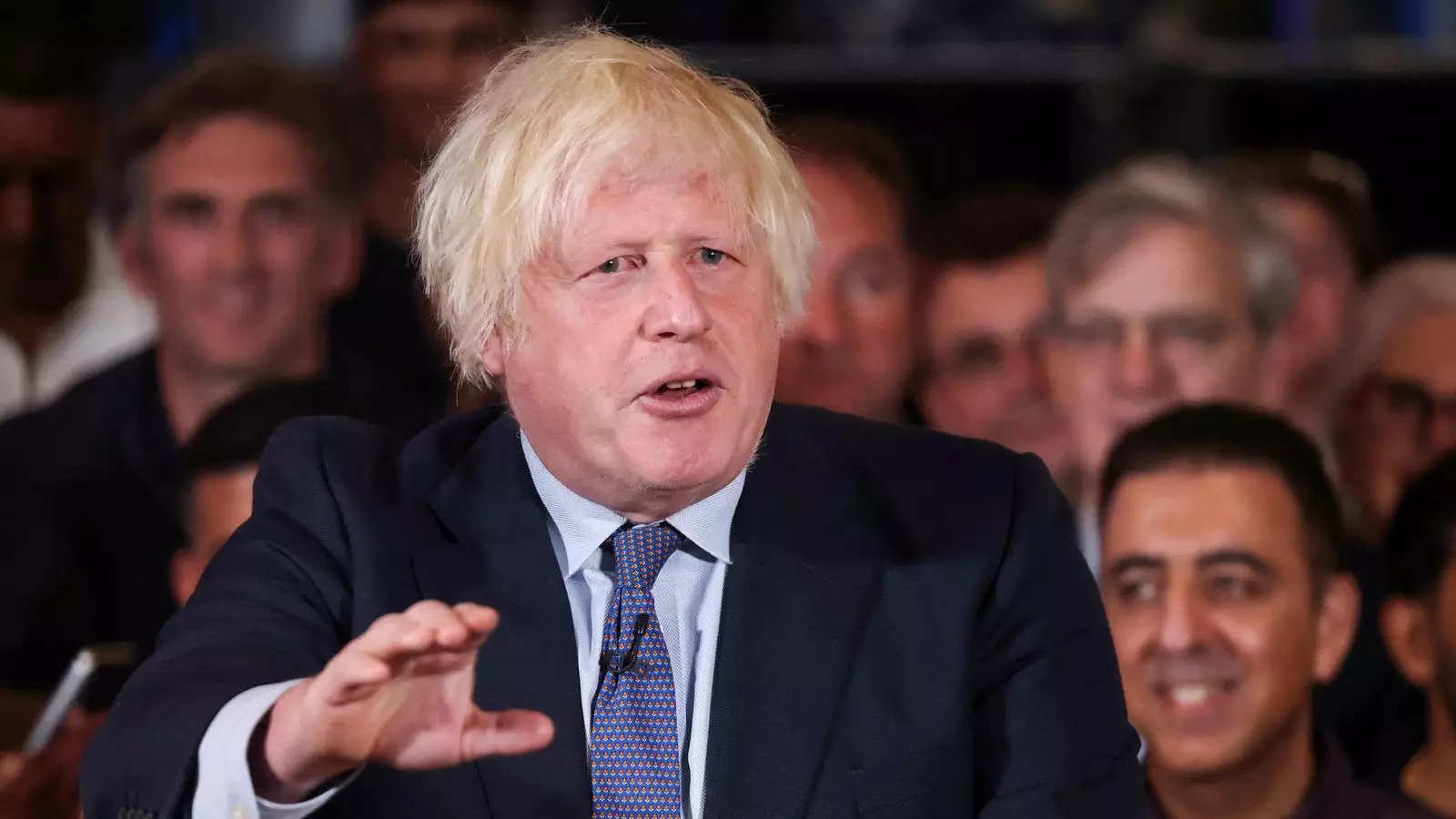In a recent development, Boris Johnson has pointed fingers at Nigel Farage for the Conservatives’ devastating loss in the general election. Johnson went as far as calling Farage’s role in the “destruction” of the Tory party as “significant”. This accusation comes in the wake of a landslide victory for Labour and a shocking defeat for the Conservative party. Johnson’s analysis of the election results in his Daily Mail column sheds light on the impact of Farage’s influence on the electorate.
According to Boris Johnson, the emergence of Reform UK as a formidable political force played a crucial role in the Conservatives’ defeat. Johnson highlighted how one Tory MP was confident of victory until realizing that a substantial number of Tory voters were swaying towards Reform UK. This shift in voter allegiance ultimately paved the way for Labour’s landslide victory. Johnson emphasized that this phenomenon was replicated across the political spectrum, leading to the decisive outcome of the election.
In his scathing remarks, Boris Johnson referred to Nigel Farage as the “cheroot-puffing Pied Piper of Clacton” who actively contributed to the downfall of the Tory government. Johnson’s criticism of Farage’s tactics and strategies underscores the divisive nature of Farage’s political influence. By characterizing Farage as a key player in the Tory’s defeat, Johnson has ignited a debate on the role of fringe parties in shaping mainstream politics.
As Boris Johnson reflects on the election results, he offers advice to the Conservative party on potential strategies for success in the future. Johnson’s parting words caution against hastily removing election-winning leaders, drawing from his own experience of forced resignation. This introspective analysis by Johnson raises questions about the internal dynamics of the Conservative party and the need for coherent leadership in times of electoral uncertainty.
With Rishi Sunak’s resignation triggering a leadership election within the Conservative party, the future of Tory leadership hangs in the balance. Amidst speculations about potential candidates vying for the leadership position, the party grapples with internal discord and external scrutiny. The aftermath of the general election has exposed deep rifts within the Conservative party, leading to soul-searching and calls for reform.
As Sir Keir Starmer and the Labour party assume power, the Tories find themselves at a crossroads, reeling from the consequences of their electoral defeat. The blame game within the party hierarchy exacerbates tensions and raises concerns about the party’s ability to regroup and reassert its political relevance. The post-election scenario underscores the challenges facing the Conservative party and the urgent need for introspection and renewal.

Leave a Reply